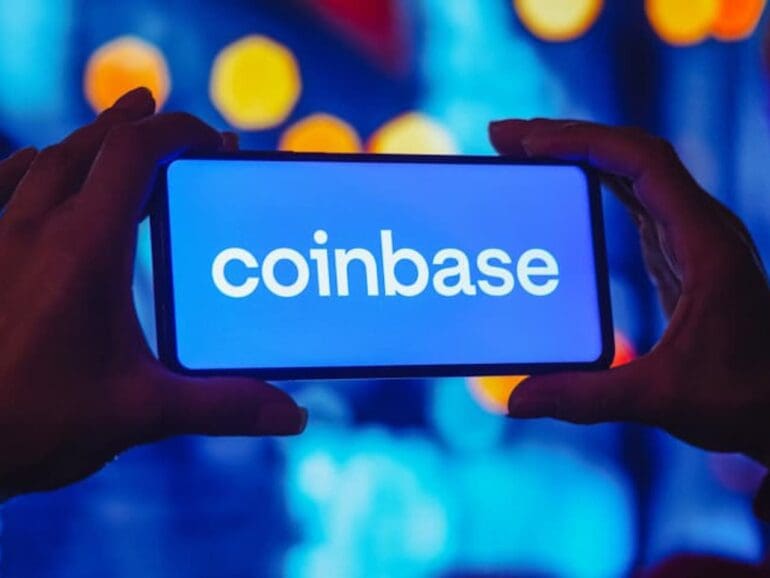After a brief interim response to ongoing issues in the banking crisis, regulators have embarked again on their campaign against crypto. This time, their target is Coinbase.
On Wednesday, March 22, the CEO of Coinbase, Brian Armstrong, took to Twitter to announce the company had received a “Wells Notice.” The warning of potential legal action from the SEC focused on an “undefined” portion of digital assets from Coinbase’s staking service (no surprise there), Coinbase Prime, and Coinbase Wallet.

The company has said that, aside from this, the SEC has given little information to them to respond to. Staff have told the company that they had identified potential violations of securities laws but declined to specify where. Coinbase has said this comes after the company had sent multiple proposals for registration which the SEC had not responded to.
“Undefined” seems to be the SEC’s motto regarding crypto regulation.
Paul Grewal, Chief Legal Officer of Coinbase, voiced the company’s frustration with the news. In a blog post on the Coinbase website, titled “We asked the SEC for reasonable crypto rules for Americans. We got legal threats instead.” he outlined the months of engagement with regulators, attempting to request feedback, only to be met with silence.
“Tell us the rules, and we will follow them,” he wrote. “Give us an actual path to register, and we will register the parts of our business that need registering.”
“In the meantime, the U.S. cannot afford regulators to continue to threaten the good actors in the crypto industry for doing the same legal and compliant things they’ve always done. This unfair approach will only drive innovation, jobs, and the entire industry overseas.”
He said that the company is prepared for a legal battle, “confident” in the legality of their assets, and “welcoming” the legal process to provide much-requested clarity.
Blinkered vision from the top
Grewal addressed the inclusion of the Coinbase Wallet in the threatened investigation.
“Coinbase Wallet is a technology, not an exchange or broker or centralized platform,” he wrote. “This misunderstanding of crypto products, assets, and services is another example of the need for comprehensive crypto regulation in the U.S. that understands the technology.”
This lack of understanding is painfully prevalent in the President’s Economic Report, published on March 20, 2023.
The report contained an extensive section on digital assets, looking at their “perceived appeal” and why “crypto assets to date do not appear to offer investments with any fundamental value, nor do they act as an effective alternative to fiat money, improve financial inclusion, or make
Payments are more efficient; instead, their innovation has been chiefly about creating artificial scarcity to support crypto assets’ prices—and many of them have no fundamental value.”
In addition, the report attempted to draw parallels between the digital asset ecosystem and the entities behind the 1907 crisis. It stated that non-registered, non-regulated “shadow banks had caused many crises in US history.” Now, digital assets are “aspiring to create a decentralized financial system without relying on governments and their regulatory frameworks,” according to the report. Conveniently, regulators’ focus on preventative enforcement instead of regulation is sidestepped.
(Serendipitously, these comments come amid a crisis caused by the traditional banking system the section seeks to uphold.)
The industry’s reaction has been disbelief and despair, lamenting the blinkered view of a technology that could provide much value if given the regulatory rails to do so safely.
As outlined by Grewal, companies in the space had advocated and advised for regulation for some time before the report.
Shying away from regulation, turning to enforcement
The news comes after a long line of enforcement actions this year, affecting the biggest centralized entities in the sector.
Cryptocurrency is crying out for regulation. Gone are the days of renegades that want nothing to do with the system. The biggest movers in the space want engagement from the US government. What they get are threats, rejections, and settlement payouts.
Other prominent players have all had their run-ins with the regulators. Kraken made headlines for their $30 million payout for “selling unregistered securities,” Paxos received their own Wells Notice for minting unregistered securities, and Ripple is still caught in its eternal battle over whether their native coin is a security or not.
Related:
However, regulators still haven’t reached a consensus on what constitutes a security in crypto, with conflicting statements throwing the industry into disarray.
At a court hearing on Voyager’s sale to Binance US, US Bankruptcy Judge Michael Wiles commented, “Regulators themselves cannot seem to agree as to whether cryptocurrencies are commodities that may be subject to regulation by the CFTC, or whether they are securities […] subject to securities laws, or neither, or even on what criteria should be applied in making the decision. This uncertainty has persisted even though cryptocurrency exchanges have been around for a number of years.”
The SEC had opposed the sale, again citing an investigation of the sale of unregistered securities as the cause.
RELATED: So Gary, are cryptocurrencies securities?
One company that knows regulators’ appetite for rejection in the face of the word “crypto” all too well is Custodia Bank. While using digital assets within their processes, the company offered an alternative to the traditional banking system, including (but not limited to) a proposal to hold $1.08 for every dollar deposited in the bank.
This proposal for alternative banking methods gained even more basis for reason in the recent collapse of multiple incumbent banks.
However, all have been rejected in a recent ruling by the Federal Reserve Board to Custodia’s application for a master account—the fundamental reason – undefined “safety and soundness risks” from using crypto.
Coinbase vs. The SEC – another battle commences
Coinbase, standing its ground, have stated that they do not list securities or offer securities products.
Grewal explained in his blog post that assets undertake a “rigorous” process before listing that had been shared with the SEC as part of the company’s public listing. Due to this, he said that 90%+ of assets are consequently rejected from the platform.
In addition, Grewal turned to the staking services provided by the platform, stating that they are not securities under any legal standard, including the Howey test. The company also said this belief in its 2022 earnings report, distancing itself from Kraken’s ruling.
“We first presented our staking services to the SEC in 2019,” wrote Grewal. “Then twice more in 2020. We were largely met with silence. Until this investigation, we had heard no concerns from the SEC about our staking services.”
He concluded that Coinbase was not any different from the company publically listed in April 2021, which involved a lengthy procedure with the SEC. Stating, like many others, that if there were rules, the company would follow them.


